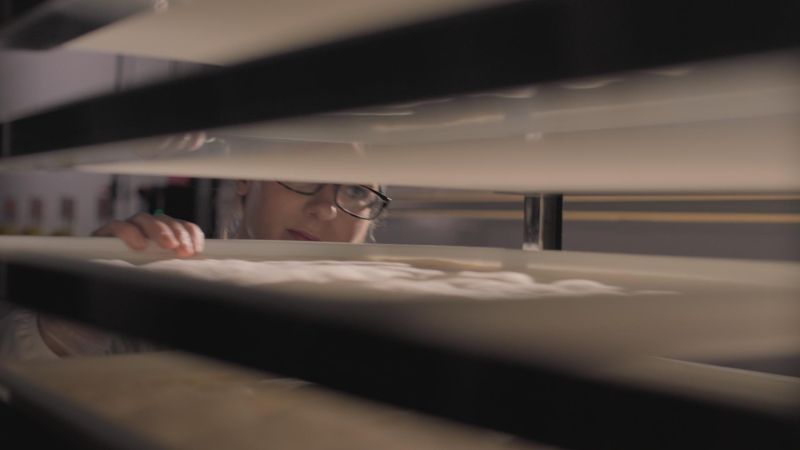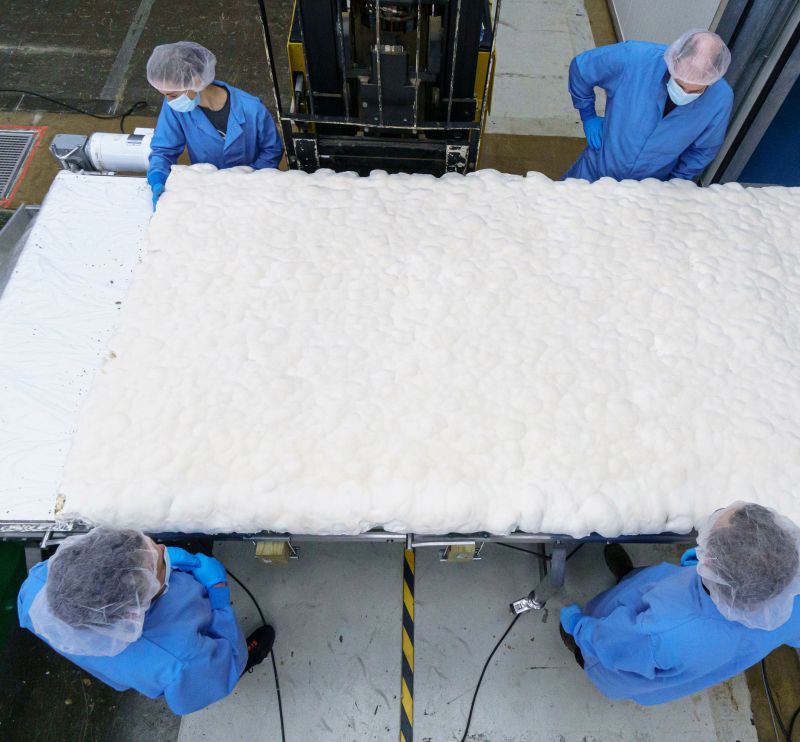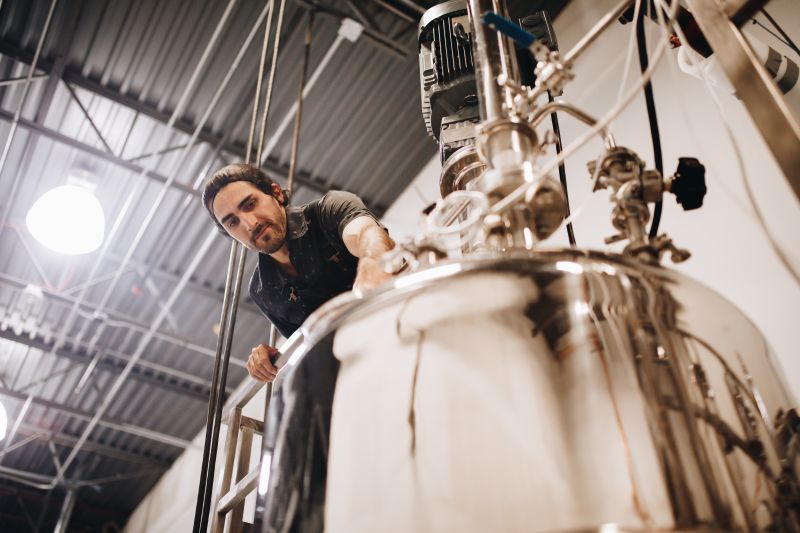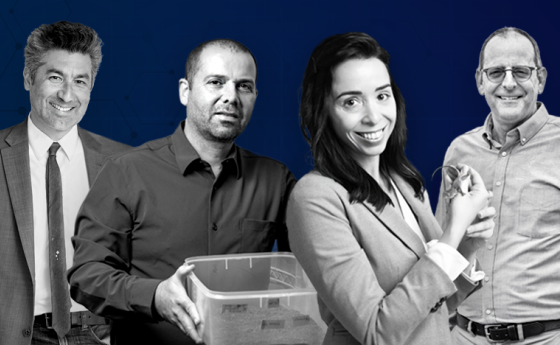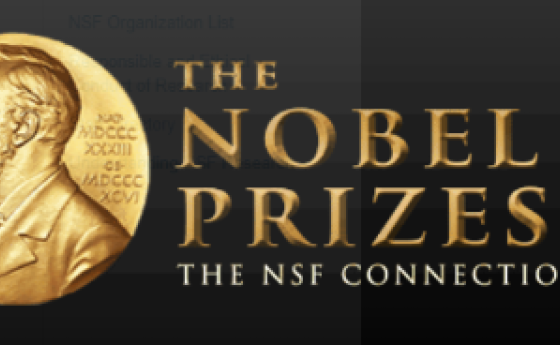
Microbes and mushrooms -- the future of Earth-friendly food?
NSF creates opportunities for food technology startups aiming to revolutionize the way alternative meat is produced
On a mission in 2009 to help determine if life could exist in extreme environments on alien moons and planets, U.S. National Science Foundation and NASA grantee Mark Kozubal was seeking out new life-forms that thrive in the acidic hot springs of Yellowstone National Park.
Kozubal did find a new fungus, later dubbed Fusarium strain flavolapis, or yellow stone. He began cultivating it in his lab, and it turned out to have amazing applications. Among them: It can ferment sugar to produce a whole fungal protein which is a nutritional powerhouse, mimics the taste and texture of meat and dairy products, and has less of an environmental impact. In 2012, he received a grant to continue his research.
Today, that protein -- nicknamed Fy for Fusarium of Yellowstone -- is the heart of a Chicago-based startup called Nature's Fynd, which is already producing meatless breakfast patties and dairy-free cream cheese sold in Northern California, New York City and Chicago. It's expanding into a 200,000-square-foot facility where F. flavolapis will be grown in trays, producing Fy protein using only sugar, water and nutrients -- with no need for sun, soil or rain. The process can easily expand and scale vertically by simply stacking trays -- or even be engineered for use in space. The company's goal is to distribute products in grocery stores nationally this year.
"I never imagined this [research] would come to where it is now," said Kozubal, co-founder and chief science officer at Nature's Fynd. "Not in my wildest dreams."
'Technology making the world better'
This success is no surprise to Ben Schrag, longtime NSF program manager for Kozubal's research. "I would never bet against the ability of these entrepreneurs to harness nature to create new ways to produce almost anything for almost any purpose," Schrag said. "I'm a big believer in the potential of technology making the world better."
Kozubal's research is made possible by America's Seed Fund. Powered by the NSF, America’s Seed Fund supports small-business innovation by offering grants to further research and develop deep technologies that have emerged from fundamental science and engineering discoveries and offer promising commercial potential and societal impact.
Nature's Fynd is one of several startups that are on the ground floor of game-changing alternative protein technologies that could revolutionize how food is produced and aim to dramatically reduce consumption of animal protein and its environmental impact.
According to the U.S. Environmental Protection Agency, polluted runoff and soil erosion from the country's vast agricultural land base are the leading cause of impaired water quality nationwide. Of the 1.2 billion acres in the U.S. devoted to agriculture, 785 million acres support livestock as pastures, rangeland and grazed forests.
Unlike animal meat, plant patties and veggie burgers, fungi-based proteins require a fraction of the land and water needed to grow crops and livestock and leave a tiny carbon footprint. They're also gluten- and allergen-free and packed with natural nutrients and all essential amino acids.
Most importantly, according to biotech developers and professional chefs, they're versatile in the kitchen and tasty for the consumer. Many culinary experts, like Tom Colicchio of Top Chef, are investing in biotech startups launching around the country.
Meati Foods: 'Something out of nothing'
Like Kozubal, another materials scientist and entrepreneur, Justin Whiteley, wasn't looking initially to grow alternative food protein with his original NSF grants. He began researching ways to use mycelium -- the muscular root structure of mushrooms -- to biomanufacture earth-friendly devices like lithium battery electrodes and water filters. But in 2018, he and his partner, microbiologist Tyler Huggins, saw interest in alternative protein companies skyrocket.
With NSF support, they pivoted and launched a mycelium-based startup now called Meati Foods. NSF program manager Anna Brady-Estevez says such pivots are central to America's Seed Fund. "We always want to give entrepreneurs the opportunity to evolve their research and evolve their commercialization approach to what is most promising and most valued," Brady-Estevez said. "We saw (projects) that were significant advances, and we also saw potential for broader impacts."
Those impacts include lowering greenhouse gas emissions and polluted runoff associated with traditional farming and raising livestock, reducing the acreage and water demands for agriculture and producing a complete protein that Whiteley calls "just healthy food."
"Mycelium is probably one of the best protein producers on the planet," said Whiteley, now Meati's founder and chief technology officer. "It grows incredibly fast and is just so efficient at converting whatever nutrients you give it into essentially more of itself."
Meati Foods grows mycelium in large fermentation tanks that, like Fy's trays, can scale vertically on a very small land footprint. Mycelium fibers are aligned to mimic the chewy muscle structure of chicken, steak or any other meat. From there, they become a high-quality protein blank slate for flavor profiles and the imagination.
"One thing that's really telling is the number of chefs that we've been able to get to invest and work with us at Meati Foods," said Whiteley. "These culinary minds are so incredibly fascinated by our product because, for one, it does taste incredibly similar to what we're trying to make it taste like. And then it's this amazing kind of unique product that they've never worked with before."
Meati's biomanufacturing process, Whiteley says, is nearly 10 times more productive per acre than soy. It can grow the meat equivalent of a cow in about four days. An 80,000-square-foot facility being built in Colorado is expected to go online in 2022. Meanwhile, the company is working with local restaurants and preparing to launch an online store to offer its products directly to consumers.
"I really started out wanting to form a company to have a large societal benefit -- a large environmental benefit," Whiteley said. "And I get to see that on a daily basis. We're growing something literally out of nothing in our facility."
Atlast Food Co.: Saving 'spaceship Earth'
A third engineer and entrepreneur, Eben Bayer, also uses mycelium to grow mushroom meat, but in an entirely unique way: in an "indoor farm" on a thin soil substrate that produces whole protein slabs that can be harvested like a vegetable but processed like a side of meat.
His technology can be used to produce all sorts of alternative proteins, Bayer said, including sushi, chicken and even low-carb pasta. But the New York-based startup he co-founded, Atlast Food Co., is focusing first on a product called MyBacon. Its ingredient label is short: oyster mushroom mycelium, coconut oil, organic sugar, sea salt, vegan natural flavors and beet juice for color.
"Bacon is just a very unique opportunity in that it's a large market – $6 billion to $7 billion [annually] in the U.S.," Bayer said. "It's one of the most valuable whole-cut meats you can sell. And if you survey people, it's one of the top foods they say they just can't give up to go to a plant-based diet. So if you're trying to change someone's whole eating habit, bacon is a really powerful leverage point and a great business opportunity."
MyBacon has been sold in a food co-op in Albany, New York, for about a year. The startup is building a massive indoor farm that can produce millions of pounds of alternative protein annually, allowing it to expand to the East and West coasts in 2022 and nationally in 2023.
Atlast spun out of a biotech company Bayer co-founded with scientist Gavin McIntyre called Ecovative that aims to rid "spaceship Earth" of plastics and synthetic foam. The company, with NSF investments, learned to create leather and compostable packing and construction materials out of mushrooms. Ecovative now has more than 10 patents in 30 countries.
As with many NSF research projects, the end result can be light-years from the launch. "It's very common that many unexpected turns happen with these startups," Schrag said of entrepreneurial pivots. "The serendipity that's involved really underscores the importance of basic research."


